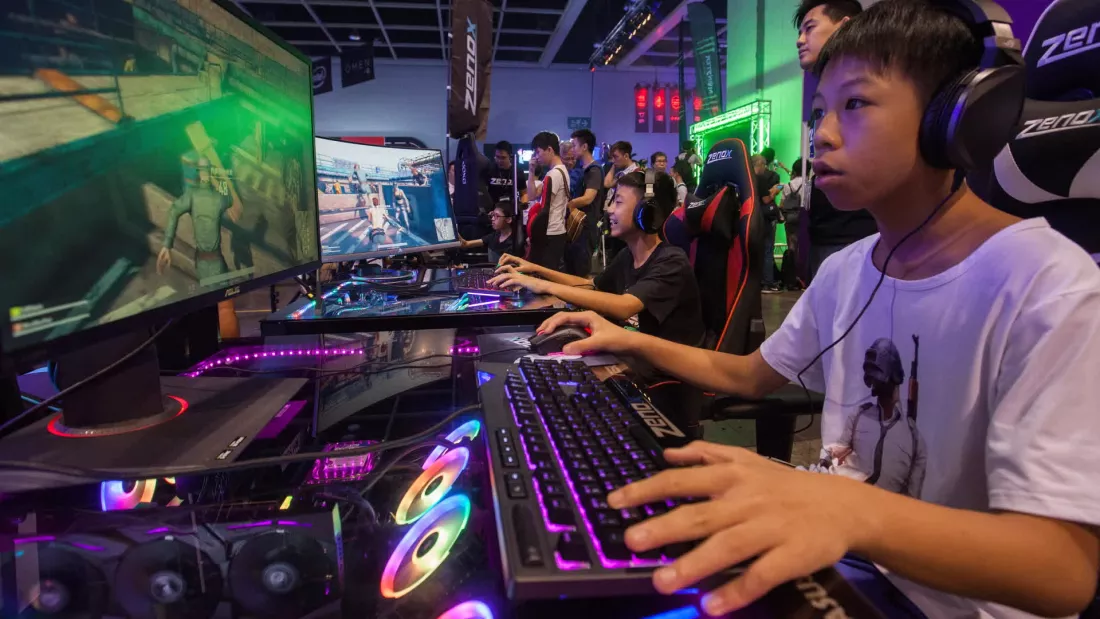In a nutshell: One of the many areas where China imposes severe restrictions is online gaming for those under 18, which it says is a way to prevent gaming addiction among youths. But are the rules working? Not according to a new study that says there is no evidence of the limitations reducing heavy gaming.

It was back in 2021 when China further tightened restrictions on the number of hours that under 18s in the country could play online games. Since November 2019, minors had been allowed to access them for one and a half hours on weekdays and three hours on holidays and weekends, they also weren't allowed to play between 10 pm and 8 am, but this was cut to just one hour of playtime - between 8 pm and 9 pm - on Fridays, weekends, and holidays.
One might expect such extreme restrictions to have had a major impact on how much time China's young play online games. However, PC Gamer reports that a new study by several computer scientists suggests otherwise. It's titled "No evidence that Chinese playtime mandates reduced heavy gaming in one segment of the video games industry."

The study notes that governments around the world are considering regulatory measures aimed at reducing young people's time spent on digital devices, particularly video games, which raises the question of how effective China's measures have proved.
The study used a massive amount of anonymized data, spanning one million separate game identifiers, 7.04 billion hours of playtime, and around 2.4 billion gamer profiles (there were multiple accounts for single users) collected from Chinese users between August 16, 2019, and January 16, 2020; these dates were chosen to avoid the lockdowns skewing the results. Data was provided by Unity Technologies, maker of the Unity engine that is used by 61% of game developers.
As it is anonymous, the data doesn't reveal which users are under 18, so different methods were used to interpret it.
The results found that while the majority of players were gaming for less than an hour per week before the regulations, there was a slight increase in the amount of heavy play (four hours per day, six days per week) after the restrictions were introduced. It's noted that the use of VPNs and account sharing will always mean studies like these can't cover every scenario.
"For the domain of gaming, our study provides evidence that broadly scoped restriction policies on youth digital behavior may lead to no widespread and uniform decrease in utilization," wrote the researchers, adding the caveat that "while our analyses suggest that the likelihood of heavy playtime may have not been reduced in some parts of the games industry after regulation, they are unable to estimate how prevalent this phenomenon is among young people specifically."
https://www.techspot.com/news/100030-study-suggests-china-online-gaming-restrictions-might-not.html